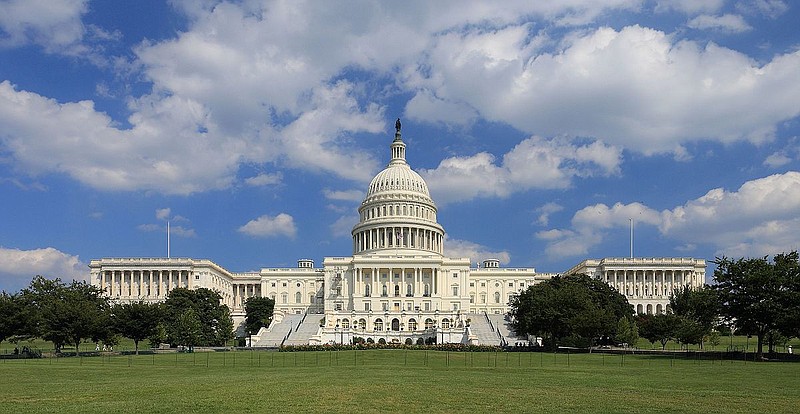Now that the predictable result has been achieved, it's worth taking a moment to think about the longer-term impact of the bizarre, emotional events of the past two weeks in Washington. Reasonable people can still disagree about what happened in a house in suburban Maryland in the summer of 1982; reasonable people can even disagree about whether now, more than three decades later, those events should matter. But reasonable people cannot disagree about the political orientation of Justice Brett Kavanaugh. In his testimony, he revealed himself to be an extreme partisan, a Republican Party activist and a man at least willing to bend the truth in public.
He did not reveal himself to be a man dedicated to upholding a neutral idea of the rule of law. On this point, Kavanaugh's opponents and supporters are in total agreement. Just after he was sworn in to the job he might hold for many decades, Sarah Huckabee Sanders, the White House press secretary, tweeted: "Congratulations Judge Kavanaugh! Instead of a 6-3 liberal Supreme Court under Hillary Clinton, we now have a 5-4 conservative Supreme Court under President @realDonaldTrump, cementing a tremendous legacy for the President and a better future for America." Note the expression "under President @realDonaldTrump": This was a partisan contest, and the winning side is crowing in triumph that one of the partisan faithful has been victorious.
But what now? Thanks to the quirks of our Constitution and the vagaries of our politics, the result is that all three branches of the U.S. government are dominated by minorities. In the White House, we have, for the second time in less than two decades, a president who did not win the popular vote. He was elected thanks to the electoral college, a system originally designed to block demagogues, but which no longer does. Electoral college delegates are not independent, as they once were; instead, they vote as their state party chairman decides. The effect is to skew the result.
For many years now the Senate, our senior legislative body, has been grotesquely out of line, too. The 40 million people who live in California get the same two votes in the Senate as the 740,000 people of Alaska. The 20 million people of New York state get the same two votes as the 755,000 of North Dakota. A system created in the 18th century, originally designed to protect smaller states against the larger ones, now has the opposite effect. The inhabitants of rural America have a far louder voice in Congress than the inhabitants of urban America, well out of proportion to their numbers. Nowhere is this more obvious than in the confirmation of Supreme Court justices.
The minority-dominated Senate and the minority-elected president have now chosen Justice Kavanaugh. And, thanks to his appointment, our Supreme Court may well cease to reflect the views of the majority, too. One recent poll showed, for example, that a very large percentage of Americans do not want to overturn Roe v. Wade. The majority of Americans prefer legal, though restricted abortion; they support affirmative action; they also prefer legal same-sex marriage. Of course, these are not the only (and maybe not even the most important) issues that the court will adjudicate in the next decade. But they are good proxies for "liberal" and "conservative" attitudes on social issues - and on all of them, the new "5-4" court seems likely to be well out of line.
There is an irony here: When they were writing it, the authors of our Constitution were worried about the tyranny of the majority, not the tyranny of a minority. But two centuries after the fact, they have achieved the opposite effect. If the coming midterm elections do not reverse at least one and preferably both of the houses of Congress, that minority will have two years to entrench its power further, through gerrymandering, voter registration laws, court appointments, even changes to electoral law. And then all bets are off as to whether minority rule can ever be reversed.
The experience of other countries in similar circumstances is not encouraging. Historically - think of Saddam Hussein's Iraq or, indeed, Bashar Assad's Syria - a minority's attempt to rule over the majority has led to terrible violence. I don't predict anything like that in the United States, where the rules and traditions are different, but I don't see how this ends well, either. Young Americans' faith in democracy is now at an all-time low. As the decisions taken by the U.S. government become ever more distasteful to ever more of them, those percentages will only continue to grow.
The Washington Post
